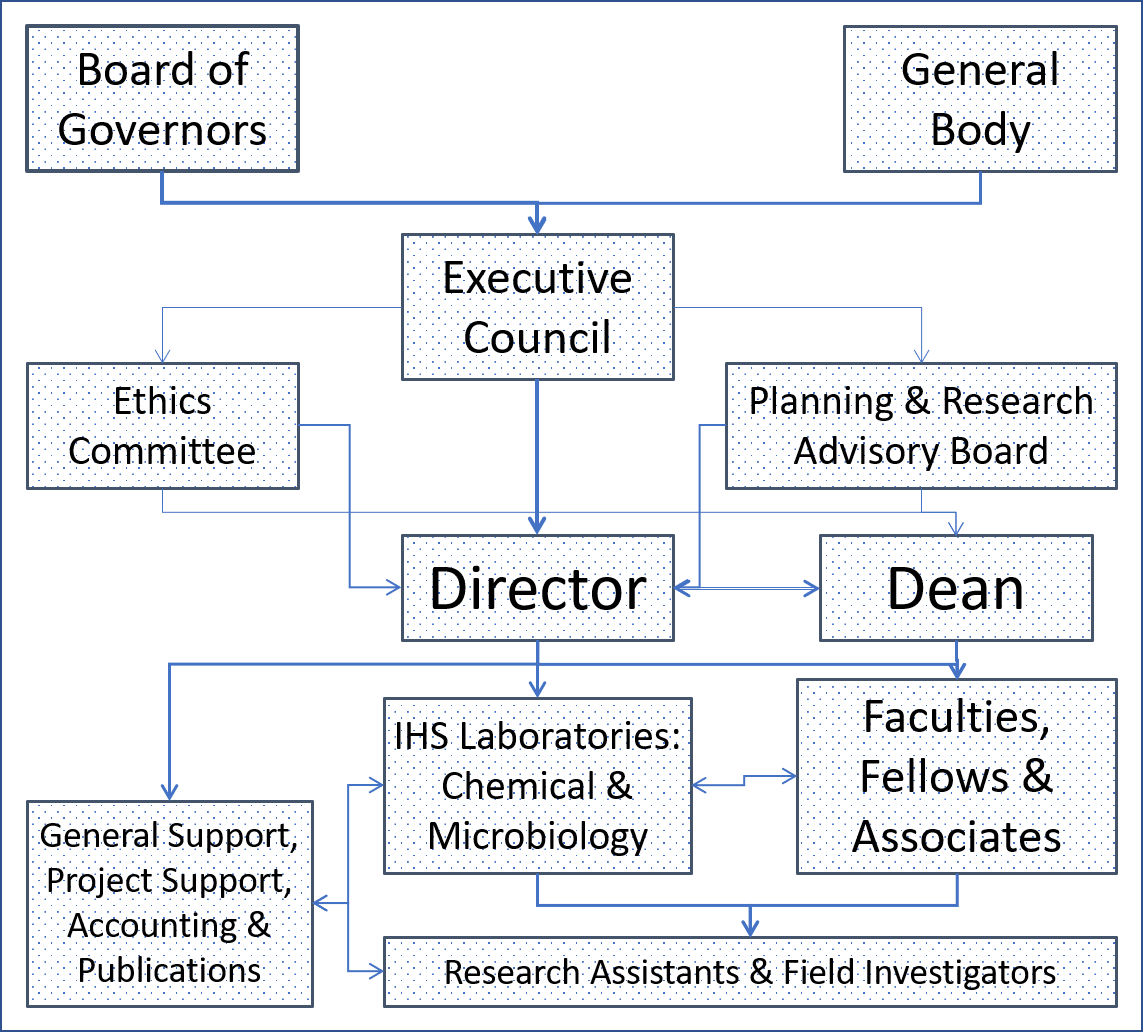The IHS Organisation
The Mission and Goals:
The Institute of Health System (IHS) mission is to groom skills, gather evidence and generate knowledge, for people's health. The IHS is founded on the principle of Multi-disciplinarity, Interdisciplinary wok, Health Systems Research, Application and Services for Public Health. The Institute strives to build local capacity and the global knowledge base for better health systems and public health. IHS activities fall into research, systemic, institutional and individual capacity development for health system strengthening, public health laboratory, and various other services towards public health. The Institute conducts health systems research on applied and operational issues to improve equity and efficiency of the health care sector. IHS offers training programmes to improve managerial skills and health system research capability in India.
Legal Status:
The Institute of Health Systems (IHS) is a civil society institution. It was established in 1990 and registered under the Societies Registration Act . The IHS is registered as a charitable scientific institution under section 12A of the Income Tax Act. Contributions to IHS are eligible for exemption under section 80G of the Income Tax Act. The Institute has been registered, by the Government of India - Ministry of Home Affairs (MHA), under the Foreign Contributions Regulation Act, from time to time, since 1994. The District Collector, Hyderabad, recognised and commended the welfare activities, in the field of education, taken up by the Institute . Starting with the first meeting held in July 1994 annual general body meetings are conducted every year, around December. IHS files its audited accounts with the Income Tax department every year. Membership of the institute is open to any person who has consistently evinced interest and demonstrated commitment towards objectives of the institute and to institutions with complementary objectives.
Oraganisational Structure:
The Institute is governed by a system of authorities consisting of the Board of Governors (BOG), the General Body (GB) and the Executive Council (EC). The General Body and the Board of Governors meet annually. The Executive Council oversees management of the Institute, appoints the Director and the Finance Officer. Office Bearers of the Institute consist of the Chairman and the President. The Chairman presides over the meetings of the Board of Governors and the General Body. The President chairs the Executive Council and, in the absence of the Chairman, the General Body.

Ethics Committee:
Research projects taken up by the institute adheres to the high moral and ethical standards in choice of methodology to test various hypotheses. The ethics committee reviews the proposals for research to assess among other considerations whether the research so designed would yield meaningful results that could not be obtained by other methods. The ethics committee also assesses whether a study has been planned in a manner so that the degree of risk taken and inconvenience caused does not exceed that determined by the humanitarian importance of the problem to be solved by the experiment. The ethics committee sees that the study will be conducted by persons who possess the requisite competence and qualities to carry out the research. The ethics committee reviews formats and procedure for voluntary and informed consent of the individuals participating in various studies. The ethics committee consists of about five members, and at least two of the members are from outside the Institute. Director of the Institute is the member-convener of the committee. The ethics committee, after examining the details of a proposal may either certify that the project has obtained the committees’ clearance as such or with specific conditions, or advice appropriate modifications to methodology so as to meet social ethical considerations.
Planning and Research Advisory Board (PRAB):
The Planning and Research Advisory Board (PRAB) reviews and provides expert advice on research studies and consultancy projects conducted by IHS. The PRAB provides road maps for health systems research strategies, development of research proposals, and opportunities. It helps amplify research potential and advises on the suitability and relevance of the research topics so as to enhance the visibility of IHS activities and provide expert advice and help in development of research strategy. In case, funding is not forth coming for certain projects, the PRAB will review the reasons for non-receipt of funding, and propose additional and/or alternative research projects and suggest probable domain experts to consult.
Accreditation and Affiliations:
- The Institute is recognised by Government of India – Department of Scientific and Industrial Research (DSIR) as a Scientific and Industrial Research Organisation.
- The IHS Laboratory is registered under the T.S. Allopathic Private Medical Care Establishments Registration and Regulation Act 2002.
- Many of the parameters tested by the IHS Laboratory are within the scope of accredition the National Accreditation Board for Laboratories (NABL). As the laboratory develops more tests of public health importance by expanding scope of the laboratory, more and more test parameters are brought within NABL accreditation from time to time.
-------------
